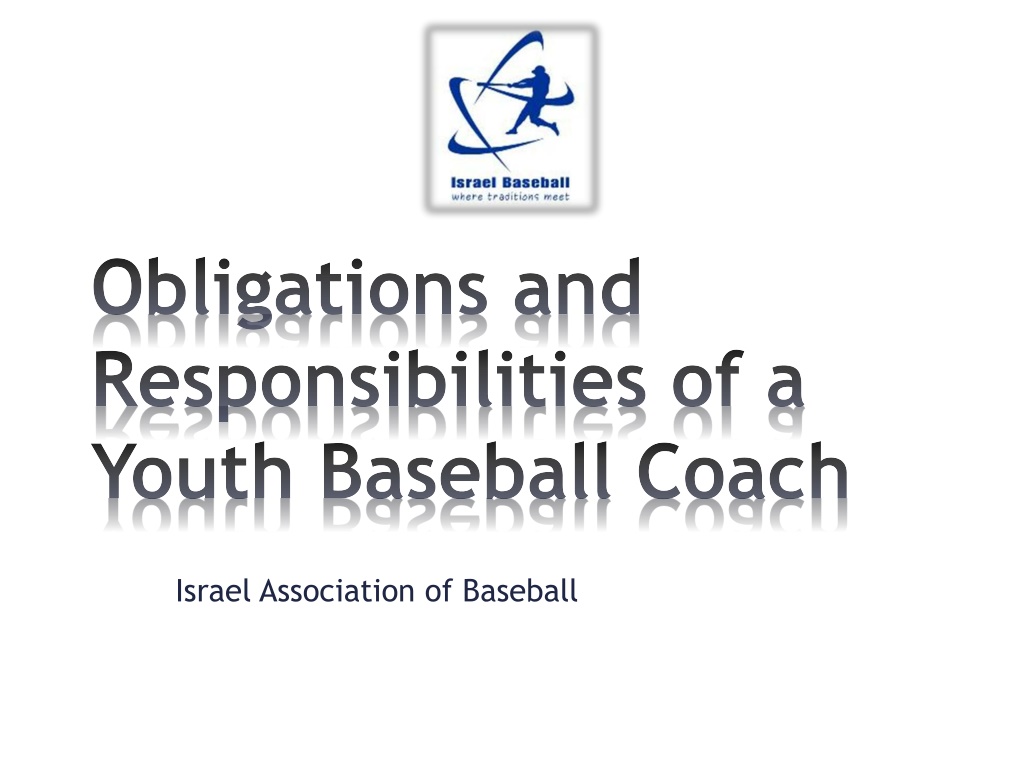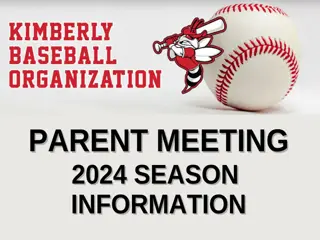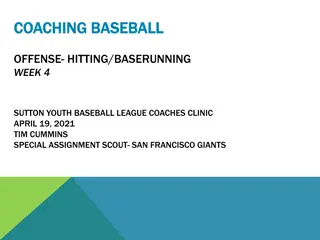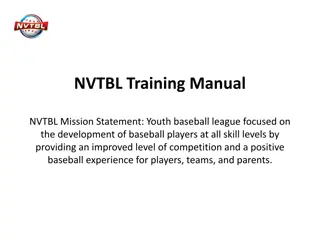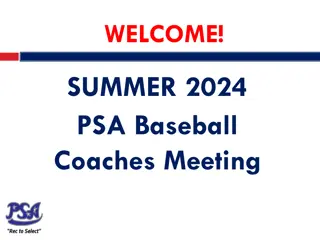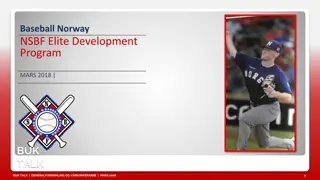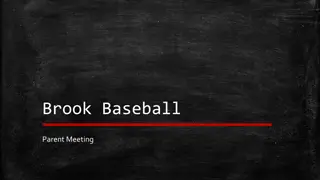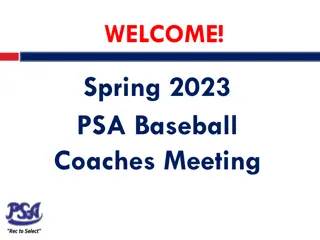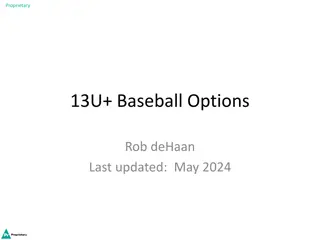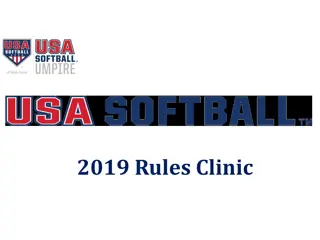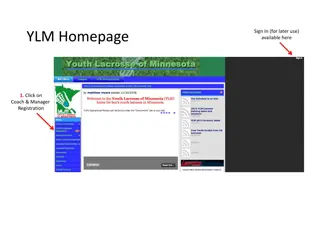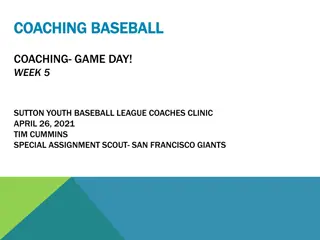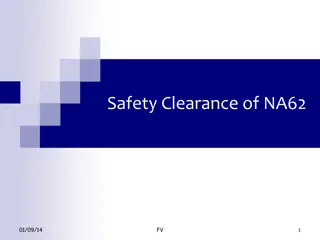Responsibilities of a Youth Baseball Coach & Safety Instructions
A youth baseball coach plays a crucial role in shaping young players' characters. The coach must prioritize safety, always be aware of players' activities, have emergency plans in place, and ensure open communication with parents. Safety instructions include supervising players, being prepared for emergencies, and knowing how to handle medical situations promptly.
Download Presentation

Please find below an Image/Link to download the presentation.
The content on the website is provided AS IS for your information and personal use only. It may not be sold, licensed, or shared on other websites without obtaining consent from the author. Download presentation by click this link. If you encounter any issues during the download, it is possible that the publisher has removed the file from their server.
E N D
Presentation Transcript
Obligations and Responsibilities of a Youth Baseball Coach Israel Association of Baseball
*What is a youth coach?
*As a youth-baseball coach, we have an impact on children and young adults in their formative years *The way we act and what we say may influence their personalities as they grow older. This is a great responsibility - a good coach will feel obligated to fulfill this responsibility conscientiously.
The youth-baseball coach wears three hats Educator and Trainer Safety Instructor Role model
Safety Instructor *The health, safety and welfare of your players are your first priority during practice as well as in the game *Safety requires careful thought and preparation arrive a few minutes early to supervise players who arrive early and start practicing *Be the last to leave, ensuring that all the players have left in proper care *If a parent is late to pick up a child do not leave the child alone, make sure they are picked up *Talk to the parent so it doesn't happen again *When organizing travel arrangements for games and other logistics, always keep the parents informed
Safety Instructor *Always know where all the players are and what they are doing *Be aware of what is going on in a general sense even when giving individual instruction *Where necessary, enlist parents to help- parents can be a blessing if they are Part of the Team
Safety Instructor *Have a first aid kit handy *Ensure all players are registered for insurance *Have money on hand for emergencies *Have a back-up plan if someone needs further attention *Know where the nearest hospital is and how to get the player to the hospital *Contact the parents *Appoint someone to take charge of the rest of the team *Decide what happens to the equipment *Younger coaches should always have a responsible adult present
Safety Instructor *Safety-first during play share this with your players *All players on the field must wear a glove and be alert at all times *Players must wear long pants and a baseball cap with the peak facing forward *Batters and base runners must wear helmets *The catcher must wear all of his protective equipment even when warming up a pitcher *Never throw a bat after batting; place it on the ground *Never pick up and swing a bat unless it s your turn to bat, you re on deck or the coach is instructing you. *Do not throw a baseball to another player if he is not paying attention, even if the play calls for a throw to that player *Players waiting for their turn at bat should stay clear of possible foul balls *Players should point out potentially dangerous situations to the coach; add it to the safety rules
Instructor and Educator *As an instructor you have an obligation to teach and impart knowledge to the players this obligates you to learn the fundamentals of the subject *Read the rule book and any other coaching manuals you can find *Watch videos *Attend clinics *Check out the material in the Coaches Corner on the IAB website *Learn the league rules of your age group you can find them on our website *Not knowing the rules or breaking them may result in forfeits and disqualification and may rob the players of their chance to play in championship tournaments *Remember, if you teach it wrong, the next coach will first have to un-teach the players, before he can re-teach them
Instructor and Educator *Make a lesson plan, don't wing it *Strive to move ahead and improve with each practice *Be goal-orientated with the practices *Recognize and record progress. *Teach the mechanics of baseball as well as the mental skills *General awareness, planning ahead, concentration, self-confidence, team play *Take care of your equipment *Assign duties to players *Add specific plays to your weekly email to the team (Hebrew and English), e.g., force play verses tag play, double plays, pop-ups/outs, base running, rundowns, etc.
Role Model *As a role model, the way you act will influence your players (and their parents) on the field and elsewhere *You expect the players to come dressed for play (cap and long pants) you should too *Obey all safety rules - they are not just for the players *Do not use foul language, smoke or drink alcohol *Be energetic and hustle *Be serious about teaching the game and expect the players to be serious about learning the game *Never cheat *Respect the umpire's decisions: Be calm when discussing a call with the umpire, do not blame the umpire, the field or individual players for poor play or losing a game *If you earn respect, there is no need to demand it *Do the right thing
And dont forget Have fun and make sure your players are too!!!
